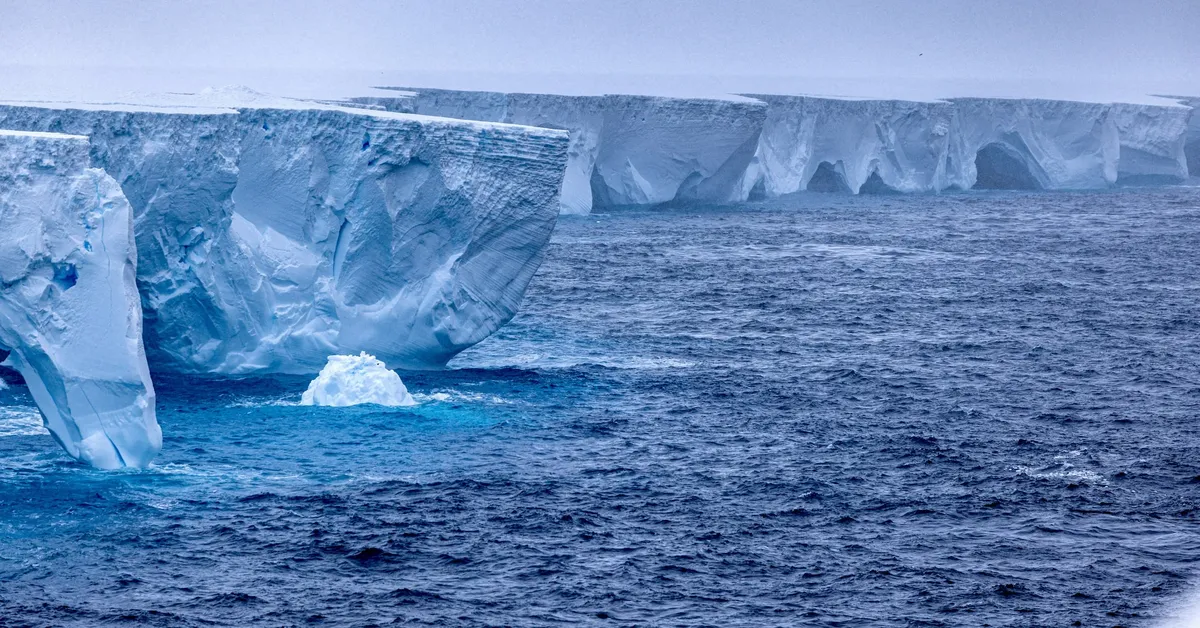
The recent study published in the journal Nature delves into the intricate and alarming effects of global warming on the Antarctic, the icy expanse located at the Earth's southernmost point. This research provides unprecedented insights into the rapid changes occurring in this frozen continent, highlighting a complex interplay of environmental factors.
The findings suggest that the Antarctic environment is undergoing swift, interrelated, and sometimes self-perpetuating transformations. The study utilized a comprehensive range of data, including observations, ice cores, and historical ship logbooks, to trace long-term shifts in the area of sea ice. This data contextualizes the alarming decline in sea ice observed in recent years, indicating that a significant regime shift has drastically reduced the extent of Antarctic sea ice, falling well below its historical variability.
According to the researchers, this decline is notably more abrupt, non-linear, and possibly irreversible compared to the Arctic sea ice loss. This comparison underscores the seriousness of the situation in the Antarctic, which is experiencing changes that could have far-reaching consequences.
The study, led by Nerilie Abram, emphasizes that these changes are triggering a cascade of effects across the Antarctic ecosystem. As the ice sheets diminish, they reflect less solar radiation, resulting in increased heat absorption by the planet. This phenomenon is expected to exacerbate the weakening of the Antarctic Overturning Circulation, a crucial ocean current that plays a vital role in distributing heat and nutrients while influencing weather patterns.
The loss of ice is particularly detrimental to various wildlife species, including emperor penguins that rely on ice for breeding and krill, a key food source for many marine animals. Furthermore, warming surface waters are projected to diminish phytoplankton populations, which are essential for sequestering large amounts of carbon from the atmosphere, exacerbating the challenges posed by climate change.
Abram, who is currently the chief scientist at the Australian Antarctic Division and a former professor at the Australian National University (ANU), notes that Antarctic sea ice may represent a critical tipping point within the Earth's climate system. The research indicates that mitigating global carbon dioxide emissions could help reduce the risks associated with these significant changes in the Antarctic; however, it may not entirely avert them.
“Once we initiate the loss of Antarctic sea ice, we trigger a self-perpetuating process,” Abram warns. “Even if we manage to stabilize the climate, we are still bound to witness the ongoing loss of Antarctic sea ice for centuries to come.” This stark reality emphasizes the urgent need for comprehensive climate action to protect this vital part of our planet.
Reporting by Peter Hobson; Editing by Kate Mayberry.